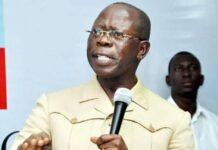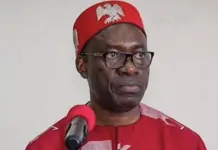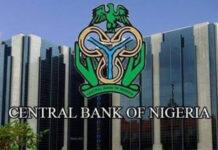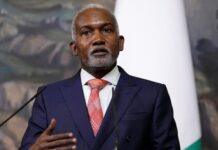Political and Economic Developments in Nigeria:
Nigeria has recently witnessed significant political and economic developments, particularly with the revision of tax reforms and the nation’s inclusion in global geopolitics. The revised tax reform bills, currently under discussion in the National Assembly, have received strong support from the Nigerian Governors’ Forum (NGF). President Bola Tinubu commended the forum’s endorsement, recognizing the bold leadership and commitment of the governors in advancing national unity. The proposal includes a shift to a derivation-based Value Added Tax (VAT) model, a point of contention, particularly with lawmakers such as Ali Ndume who have expressed concerns about the 30% derivation sharing formula.
A crucial component of the tax reforms is the introduction of a more optimized tax system, with increased revenue generation potential without hiking taxes. This addresses challenges such as the multiplicity of taxes and the lack of technology adoption in tax administration. Experts argue that the reforms are essential for correcting the “window-dressed economy” inherited before President Tinubu’s tenure. The tax reform bills are expected to be passed into law by the first quarter of 2025, with implementation slated for July 1, 2025.
Additionally, Nigeria’s political and economic focus has expanded to include global partnerships, as the country officially joined the BRICS group as a partner nation. This inclusion in the group, alongside countries like Belarus, Bolivia, and Malaysia, raises questions about Nigeria’s global standing. Critics argue that the country, as a regional power in Africa, should have secured full membership. Nevertheless, joining BRICS marks a significant step in Nigeria’s engagement with the evolving international economic landscape, opening avenues for trade, investment, and diplomacy.
2. Tax Reforms in Nigeria:
Tax reform in Nigeria has become a central issue, with ongoing debates regarding the best approach to modernize the tax system. President Tinubu’s administration is pushing for a comprehensive overhaul of the existing tax framework, which has been criticized for inefficiency and the low rate of tax compliance. A central feature of the proposed reform is a shift to a derivation-based VAT system, which would redistribute tax revenue according to regional economic contributions. The NGF’s endorsement of the revised tax proposals, despite initial reservations, highlights a significant political consensus across the nation.
Experts have emphasized the importance of leveraging technology to streamline tax collection and administration. With a large portion of Nigeria’s economy operating informally, there are concerns about the ability to capture tax revenue from this sector. The proposed reforms aim to address this issue by simplifying tax collection processes and offering incentives for small and medium enterprises (SMEs). However, challenges remain, such as determining the appropriate thresholds for tax exemptions and addressing concerns raised by groups like ASU regarding the future of educational funds (T-Fund).
The NGF’s involvement has been instrumental in pushing the reforms forward, overcoming political obstacles related to revenue allocation, which has been a point of contention between the federal and state governments. With substantial input from stakeholders, the reforms are expected to pass in 2025, bringing much-needed modernization to Nigeria’s tax system. The success of these reforms will ultimately depend on continued political cooperation and a balanced approach to revenue distribution.
3. Nigeria’s Role in BRICS and Global Geopolitics:
Nigeria’s inclusion as a partner nation in the BRICS group marks a pivotal moment in the country’s geopolitical trajectory. The BRICS coalition, which includes Brazil, Russia, India, China, and South Africa, has evolved into a significant global bloc that seeks to challenge the Western-dominated financial and political systems. Nigeria’s new status within this group signals a shift toward greater global engagement, although some experts question whether being a partner nation rather than a full member is sufficient for Nigeria’s aspirations.
Nigeria’s strategic position in Africa and its growing economic potential make it an important partner for BRICS, even if it is not yet a full member. This partnership provides Nigeria with opportunities to access new markets, engage in cross-border trade, and build diplomatic ties with countries seeking alternatives to the Western financial system. Nigeria’s membership in BRICS could also enhance its influence in international forums and provide a platform for collaboration in areas such as energy, infrastructure, and technology.
However, critics of Nigeria’s BRICS involvement express concern that the country’s alliance with both the West and BRICS might lead to a delicate balancing act in its foreign policy. The growing competition between Western powers and BRICS nations, including Russia and China, poses challenges for Nigeria in maintaining positive relationships with all sides. Despite these concerns, Nigeria’s participation in BRICS is viewed as a positive step toward diversifying its international partnerships and asserting its role in global geopolitics.
4. Impact of Fuel Price Changes in Nigeria:
The fluctuation of fuel prices in Nigeria has far-reaching implications for the country’s economy and its citizens. Recent changes, driven by global oil market conditions, have resulted in an increase in fuel prices, pushing the cost of petrol above 1,000 Naira per liter. This surge in prices follows a decline in pump prices, when Dangote Refinery reduced fuel prices. However, the global rise in crude oil prices, particularly Brent Crude, has led to an adjustment in the refinery’s depot price, causing a ripple effect on retail prices across the country.
The increase in fuel prices has a profound impact on the private sector, particularly small businesses that rely on transportation and energy to conduct operations. Higher fuel prices inflate the cost of logistics and production, leading to higher consumer prices. The informal sector, which constitutes a significant portion of Nigeria’s economy, is especially vulnerable as many businesses operate with limited access to subsidies or formal financial support.
Despite the operational challenges for businesses, the situation has prompted renewed discussions about the role of Nigeria’s refineries. The government’s push for domestic refining capacity, symbolized by Dangote Refinery’s operations, holds promise for long-term solutions. However, with fuel prices continuing to rise due to global pressures, Nigeria’s dependence on international oil markets remains a critical issue for policymakers. The government will need to balance the needs of consumers, businesses, and the oil industry while exploring alternative energy sources and refining solutions to stabilize fuel prices in the future.
Join Television Nigerian Whatsapp Now
Join Television Nigerian Facebook Now
Join Television Nigerian Twitter Now
Join Television Nigerian YouTUbe Now






















